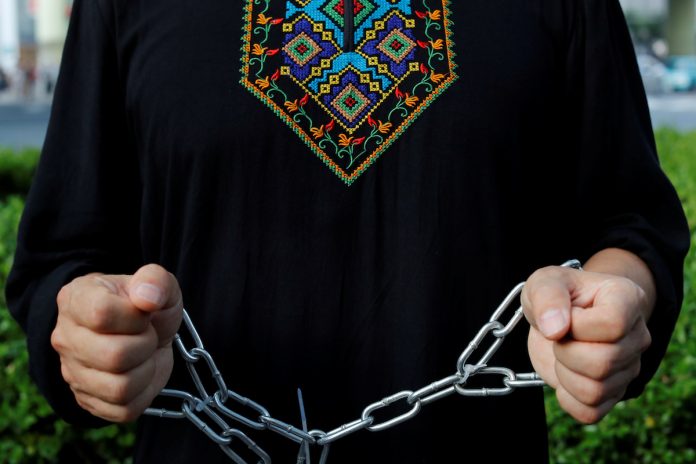Muslim nations must speak out against China’s “horrific” mistreatment of Uyghur Muslims, and shrug off fears of repercussions by the economic giant, the U.S. ambassador for religious freedom said.
Sam Brownback said it was unacceptable that Muslims nations were scared of condemning the mass detention of one million fellow Muslims in China’s remote Xinjiang region, over fears of losing out on Chinese investment.
“They need to speak out. History will not reward their silence. To be silent is to agree with and to allow something to take place,” Brownback told Radio Free Asia in an Oct. 17 interview.
“It means you’re not entering your voice into the discussion right now that needs to take place, particularly when so many people are locked up in persecution in these camps.”
Western nations have criticised China over the camps where detained Uyghurs and Muslims from other ethnic minorities are being forced to learn Chinese and abandon their own languages and religious practices. China says they are part of a crackdown on Islamic extremism.
But Muslim nations have largely stayed silent. Some do not want their own human rights records scrutinised as a result. But experts also point to the billions of dollars of investment at stake, including through China’s Belt and Road infrastructure program, in a sign of Beijing’s ability to leverage its growing economic clout.
“People need to get their courage back — that a lot of people are just scared of the Chinese money. That somehow China is going to punish them economically, or withhold some sort of trade agreement with them (for speaking out),” Brownback said.
The envoy said he hoped Muslim governments would eventually bow to public pressure in their own countries.
“It’s my hope that a number of people on the streets in these Muslim majority countries will start to hear about what’s taking place with the Uyghurs and that … their voices will raise up and force their leadership to speak out more aggressively and more effectively against what China is doing.”

Brownback also did not rule out more measures against China over the Uyghur crackdown, after the U.S. said this month it will impose visa restrictions on Chinese officials accused of involvement.
The State Department has also blacklisted 28 Chinese organizations with ties to the U.S.
“I think that’s clearly possible,” he said of further actions. “This is a horrific human rights situation that’s happening — over a million in detention camps.”
The U.S. has accused China of lobbying governments, including Muslim ones, not to attend a U.S.-organised conference on religious freedom in September on the side-lines of a U.N. meeting, that condemned Beijing’s policies.
Western ambassadors signed a letter at an U.N. Human Rights Council session in July expressing concern over the detention centres and called for international observers to be allowed unfettered access.
Days later, nations recruited by Beijing, including a string of Muslim ones, delivered their own letter to the council stating that the centres were part of a “counter terrorism” operation and that human rights were being upheld there.
A few countries with large Muslim populations did not sign the second letter including Indonesia, Malaysia and Turkey.









